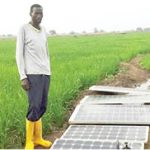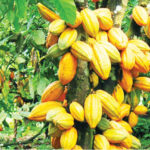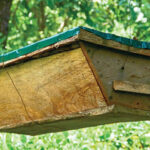It is all peace now among the warring Fulani and Kutep communities in Taraba following brokered peace initiated by the state government to settle a long-age dispute between them.
For the first time since February this year the Fulani in Ussa and Takum can now travel from Kashinbila through Takum to Maraban Baissa to sell their cows without being attacked or harassed. Similarly, members of Kutep ethnic group are equally back to their farms without the fear of being attacked or harassed by Fulani herdsmen.
Bank ‘fraud’: EFCC moves arrested Kogi Assembly candidate to Lagos
How Taraba warring communities sheathed their swords
The two sides signed a peace agreement after months of hostility leading to destruction of lives and properties.
The peace accord came as a result of a series of reconciliation and peace meetings between representatives of Kutep ethnic group and the Fulani residing in Takum and Ussa local government areas.
The reconciliation, Daily Trust finding revealed, was initiated by Governor Darius Ishaku through a committee he set up comprising leaders of the two ethnic groups.
Daily Trust finding revealed that hostilities between the two groups first started in 2017 following alleged killings of some Kutep at Koonkean Lissam by Fulani herdsmen.
The Kutep were also alleged to have retaliated by killing two Fulani men at Ucha Lissam and Kpambo Yashe areas.
These killings, Daily Trust learnt, were the genesis of the hostilities between the two sides.
According to sources, Fulani herdsmen regard part of Ussa and Takum as their choice grazing area over the years because of a special grass that is available all year round. In addition, the Katsina-Ala River, which has its source in Cameroon mountain, ran through most part of Takum and provides water to the area all year round.
It was learnt that thousands of Fulani herdsmen move into the area at a particular time of the year when most areas in Northern Taraba are dried.
The migrant herdsmen stay up to June and July yearly when rainfall on that axis is heavy before moving to the northern part of the state.
There are also indigenous Fulani herdsmen who consider the area as their second home and have been in the area for decades living in peace with their hosts. Some of them speak the Kutep language fluently.
The 2017 crisis was brought to an end following a peace accord signed by the two groups but this was punctured on February 25 following an outbreak of another violence involving the alleged murder of a Kutep man by a Fulani herdsman at Kpambo Yashe.
This was followed by isolated killings by the two groups especially in the remote part of the two local government areas.
On April 17, mass killings erupted and the Fulani herdsmen were sacked completely out of the area and forced to migrate to neighbouring Cameroon Republic as well as into other local government areas of the state.
The crisis led to the killing of the commandant of army battalion in Takum and seven other soldiers who were on a peace mission to the area.
It was alleged that the Fulani herdsmen invaded Kutep villages and killed several people and burnt down houses, foodstuffs and vehicles.
On the other hand, Kutep militia hunted and killed several Fulani herdsmen and hundreds of cows.
They also mounted road blocks along Kashinbila-Takum road, Takum-MarabanDonga road and Takum-Wukari during which innocent travellers, mostly unconnected with the crisis were killed.
Worried by the destruction of lives and properties, some elders from both sides started a move to bring an end to the crisis and the move was encouraged by the state government.
A committee under the joint chairmanship of a Kutep clergyman, Rev. Risae Shamaki, and Fulani man, Alhaji Adamu Bawa, as secretary was inaugurated in August to find a lasting solution to the crisis.
At the end of its several meetings, the committee was able to broker peace; and got the two sides to agree to terms of the agreement.
Some of the conclusions reached include the immediate stoppage of retaliatory killings by members of the two ethnic groups against each other as well as the destruction of properties.
Similarly, all illegal checkpoints were to be immediately removed to allow for the free movement of people.
Visiting herdsmen with their herds, according to the peace agreement, will only be allowed into the area from mid-December to mid-April while grazing by minors or under-aged will only be allowed under the supervision of an adult.
The agreement also provided for the setting up of a surveillance and disciplinary committee, comprising Kutep and Fulani, with the responsibility of adjudicating on cases involving damage to crops and theft.
Similarly, the indiscriminate felling of trees by Fulani herdsmen, which has been a source of crisis, is to be stopped immediately.
It was agreed that the Nigerian Army should be recognised as the only legally constituted organ that would ensure peace in the area while there should be an effective means of monitoring of the movement of strangers and troublemakers into the area.
The state government was also advised to hasten the appointment of Ukwe Takum whose stool was vacant for more than 25 years to serve as a leading voice for peaceful coexistence among people in the area.
The Chairman, Caretaker Committee, Ussa Local Government Area, Mr Abershi Musa, said the peace accord would bring peace and harmony among both Kutep and Fulani communities.
He said he grew up to see Fulani herdsmen in his area living in peace and harmony with the host communities.
“The Fulani herdsmen are in our areas since the 60s and some of them speak Kutep fluently; therefore, the crisis was unfortunate,’’ he said.
He also thanked Governor Darius Ishaku for initiating the peace and reconciliation effort which resulted in the peace accord signed by the two warring factions.
The Chairman of Miyetti Allah, Taraba State chapter, Alhaji Mohammed Bammi, also commended the governor for bringing the two sides to a round table that resulted in the peace agreement.
He said the accord was a welcome development and it is working very effectively. He said Fulani herdsmen are now moving freely in the area.
He gave an assurance that his people would abide by all the terms of the agreement and would continue to be law-abiding.
Similarly, the President of National Kutep Development Association, Mr Emmanuel Ukwen, said the peace accord has brought peace to all Kutep areas now.
He said, however, there are still isolated cases of destruction of crops by Fulani herdsmen being recorded and a committee comprising the army, the Kutep elders and Fulani leaders are addressing the issue. He said herdsmen occupying houses belonging to members of the Kutep ethnic group in some villages have been told to vacate them to enable the owners to return to their houses.
Mr Ukwen said as a result of the adherence to the peace accord, many members of his community are returning to their houses, adding that both sides are now living peacefully.

 Join Daily Trust WhatsApp Community For Quick Access To News and Happenings Around You.
Join Daily Trust WhatsApp Community For Quick Access To News and Happenings Around You.


